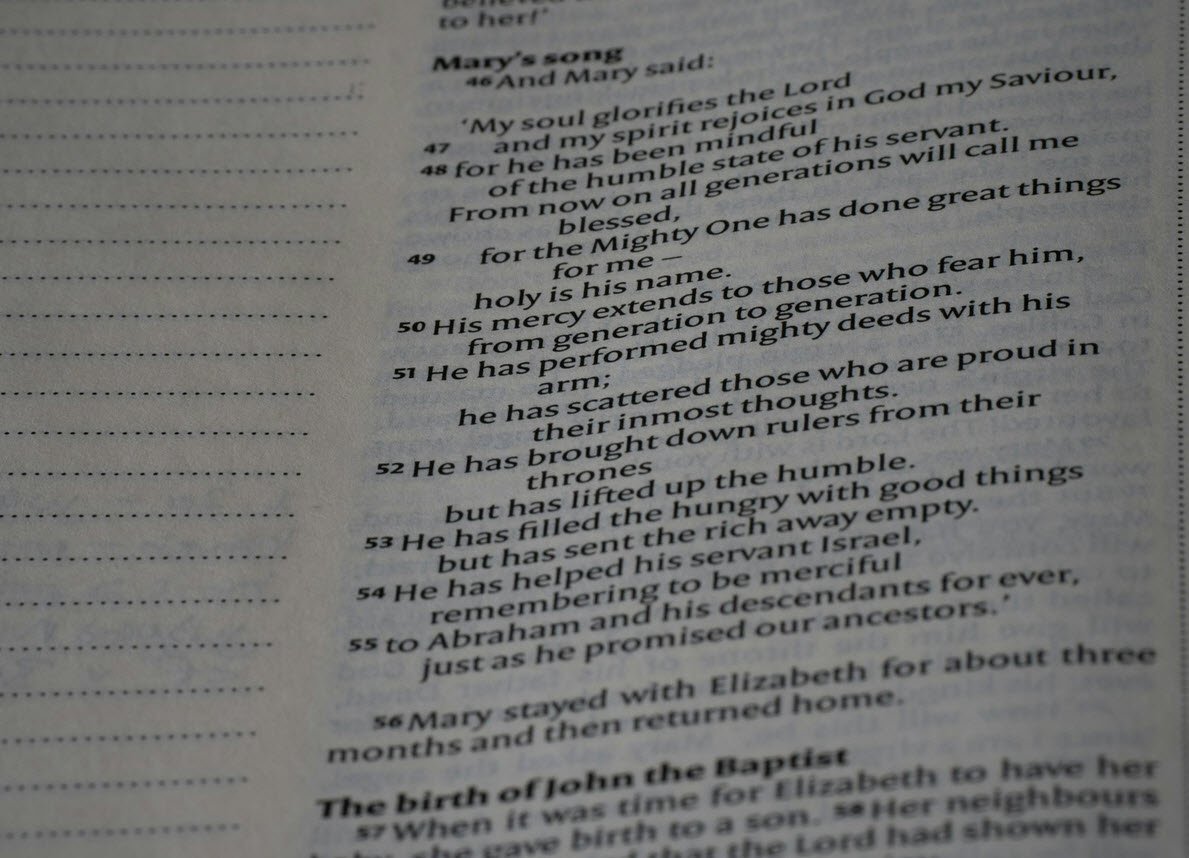
In the realm of grammar and language, prepositions play a crucial role in constructing coherent sentences and conveying precise meanings. These small but mighty words serve as vital connectors, establishing relationships between different elements within a sentence. By understanding the meanings and applications of prepositions, you can enhance your ability to communicate effectively and express your thoughts with clarity.
In this article, we will explore the world of preposition words and their various meanings.
Firstly, what exactly is a preposition?
A preposition is a word that typically precedes a noun or pronoun and shows its relationship with another word in the sentence. It helps to establish location, time, direction, manner, and other important details that give context and depth to the overall meaning of a sentence. Common examples of prepositions include “in,” “on,” “at,” “for,” “with,” and “to.”
Let’s delve into some of these preposition words and their meanings:
- In: This preposition indicates being inside or within something. It denotes location, position, or inclusion.
For example, “The book is in the bag” or “She lives in the city.” - On: On expresses the idea of contact or being positioned above something. It is used to convey surface relationships.
For instance, “The cup is on the table” or “He put the hat on his head.” - At: At signifies a specific point or location. It is used to indicate a particular place or time.
For instance, “We will meet at the park” or “She arrived at 7 p.m.” - For: For denotes purpose, intention, or duration. It indicates the reason behind an action or the duration of an event.
For example, “He bought flowers for his mother” or “They played for hours.” - With: With signifies association, accompaniment, or means. It indicates the presence of someone or something together with another.
For instance, “She went to the movies with her friends” or “He wrote the letter with a pen.” - To: To expresses direction, movement, or purpose. It is often used to indicate the destination or goal of an action.
For example, “They traveled to Europe” or “She gave the book to her brother.”
It is important to note that prepositions can have multiple meanings and can vary depending on context. Additionally, some prepositions can function as adverbs or conjunctions, further adding to their versatility.
Moreover, prepositions can be combined with other words to form prepositional phrases, which provide additional information about the nouns or pronouns in a sentence. For example, “The cat is under the table” or “They went for a walk in the park.” These phrases can help paint a more vivid picture and provide specific details.
Understanding the proper use of prepositions is essential for constructing grammatically correct sentences and conveying precise meanings. It is advisable to consult a reputable grammar guide or dictionary for further information and examples of prepositions in different contexts.
| S.No. | Word | Meaning |
|---|---|---|
| 1. | Abide by – Fulfill | You must abide by your promise |
| 2. | Absent from | He was absent from the class. |
| 3. | Abstain from | He abstains from wine. |
| 4. | Accede to (agree) | My father acceded to my request |
| 5. | Accuse of (blame) | He was accused of killing a person. |
| 6. | Acquit of (free) | The judge acquitted him of all the charges. |
| 7. | Agree with (person) | I am agree with you. |
| 8. | Agree to (thing) | I agree to your advice. |
| 9. | Angry with (person) | I am angry with you. |
| 10. | Angry to (thing) | I am angry to his proposal. |
| 11. | Aim at (thing, position) | He aimed at the tiger and fired. |
| 12. | Answer for (responsible) | We are answer for our misdeeds. |
| 13. | Appeal to (person) | He appeals to my friend for help. |
| 14. | Appeal for (thing) | She appeals for his verdict. |
| 15. | Apply to (person) | He applied to the principal. |
| 16. | Apply for (thing) | He applied to the principal for this post |
| 17. | Apologise to (person) | She appologise to his father |
| 18. | Apologise for | You should apologise to him for your mistake. |
| 19. | Ask for | He asks for a comfortable room. |
| 20. | Aware of | We are aware of its outcomes. |
| 21. | Access to (noun) | He has access to this officer |
| 22. | Access of (verb) | He has access to this officer. |
| 23. | Access of | He has access of meeting PM. |
| 24. | Acquaint with (familiar with) | You are acquainted with him. |
| 25. | Anxiety for (worry) | He had great anxiety for his brother. |
| 26. | Assurance of | I gave him assurance of his help. |
| 27. | Accustomed to (habitual-positive) | He is accustomed to hard work. |
| 28. | Addicted to (habitual-negative) | He is addicted to drinking/ smoking. |
| 29. | Affected by | The farmers are affected by Corona. |
| 30. | Afflict with (annoy) | I am afflicted with my dog. |
| 31. | Amused with (happy) | I am amused with my friends. |
| 32. | Annoy at | He is annoyed at his behavior. |
| 33. | Answerable to | He was accused of killing a person. |
| 34. | Answerable for | The judge acquitted him of all the charges. |
| 35. | Bark at | Dogs bark at strangers. |
| 36. | Break into (enter forcibly) | They break into the house. |
| 37. | Borrow from | He borrowed a book from me |
| 38. | Blame for | You should not blame you father for your failure. |
| 39. | Care for | You should care for my advice. |
| 40. | Charge of (noun) | Charges of corruption. |
| 41. | Charge with (verb) | He was charged with robbery. |
| 42. | Compare with (similar things/person) | Compare this apple with that. |
| 43. | Compare to (dissimilar things) | Sleep has been compared to wake. |
| 44. | Congratulate on | He congratulated me on my success. |
| 45. | Consist of (make of) | The book consists of 50 pages. |
| 46. | Consist in | Beauty consists in simplicity. |
| 47. | Contact with | I have no contact with the officers. |
| 48. | Complaint about (thing) | Complaint about a defective radio set. |
| 49. | Competition with (person) | I have no competition with you for power and money. |
| 50. | Competition for (thing) | I have no competition with him for this post |
| 51. | Complaint to/against (person) | A complaint to the manager against him. |
| 52. | Claim to – property | He claimed to his property. |
| 53. | Claim on – person | I have no claim on him. |
| 54. | Deal with – a person – on – a subject | He deals with all in a polite way. |
| 55. | Depend on – bank, rely on/upon | He depends on us. |
| 56. | Differ with – a person – on – a subject | He differs with you on this point. |
| 57. | Differ from – to be unlike | This book differs from that. |
| 58. | Disgrace to | Atraitor is a disgrace to the nation |
| 59. | Dispose of – get rid of | He has disposed of his car. |
| 60. | Deprive of – deny | He was deprived of his rights. |
| 61. | Duty to | You should do your duty to your parents. |
| 62. | Escape from – flee | He has escaped from this danger. |
| 63. | Exception to-rare to | There is an exception to every rule. |
| 64. | Fall on – attack | They fell on their enemy. |
| 65. | Fall out – quarrel | Don’t fall out over trifles. |
| 66. | Feed on | Cows feed on grass. |
| 67. | Give in – yield to – surrender | Give in before your enemy. |
| 68. | Give up – abandon, renounce | You should give up bad habits |
| 69. | Give away – distribute | Awards were given away by the chief guest. |
| 70. | Grieve at – feel pain | Don’t grieve at this loss.. |
| 71. | Grieve for | Don’t grieve for him.. |
| 72. | Hope for | Hope for the best. |
| 73. | Hope of | No hope of recovery. |
| 74. | Indulge in – mix up | Don’t indulge in gossips. |
| 75. | Interfere with – person | He usually interferes with others. |
| 76. | Interfere in | Don’t interfere in my work. |
| 77. | Inferior to – of mean quality | He is inferior to me. |
| 78. | Insist on | He insists on watching the movie. |
| 79. | Junior to | We are junior to them. |
| 80. | Knock at | He is knocking at the door. |
| 81. | Laugh at | We should not laugh at the poor. |
| 82. | Lay by – save | You must lay by something for your old age. |
| 83. | Lay down – sacrifice | He laid down his life for his nation. |
| 84. | Lead to | This road leads to Goa. |
| 85. | Live on | He lives on fruit and milk. |
| 86. | Hope for | Hope for the best. |
| 87. | Hope of | No hope of recovery. |
| 88. | Indulge in – mix up | Don’t indulge in gossips. |
| 89. | Interfere with – person | He usually interferes with others. |
| 90. | Interfere in | Don’t interfere in my work. |
| 91. | Inferior to – of mean quality | He is inferior to me. |
| 92. | Insist on | He insists on watching the movie. |
| 93. | Liable to – responsible to | We are liable to any kind of change. |
| 94. | Long for – desire for | He is longing for bright future. |
| 95. | Look for – search, find out | He is looking for his father.. |
| 96. | Loyal to | We should be loyal to our nation. |
| 97. | Look after – take care of | We should look after our parents. |
| 98. | Look up – find | I looked up my bike at the parking. |
| 99. | Look at – see | Please look at the picture. |
| 100. | Look out – watch/beware | Look out your shoes in the marriage |
| 101. | Look over – examine | The police looked over my room after theft. |
| 102. | Look into – inquire, inspect | They are looking into the matter. |
| 103. | Make out – discern/ identify | He can make him out. |
| 104. | Necessary for | Water is necessary for life. |
| 105. | Notorious for – for bad | He is notorious for his wrong deeds. |
| 106. | Oblige to – person | I am obliged to help you |
| 107. | Oblige for – thing | I am obliged to you for this act. |
| 108. | Obedient to | You should be obedient to your elders. |
| 109. | Overcome with – control | He was overcome with grief. |
| 110. | Overwhelmed with | The old man was overwhelmed with grief. |
| 111. | Part with – something | He can part with this watch. |
| 112. | Part from – person | He cannot part from his wife. |
| 113. | Peculiar to – strange | These customs are peculiar to this tribe. |
| 114. | Prompt in – quick | They are prompt in making payment. |
| 115. | Quick at | He is very quick at his work |
| 116. | Polite to – humble/sincere | Be polite to your parents. |
| 117. | Pray for – job/health | We should pray for everyone’s good health. |
| 118. | Pray to – Person | We should pray to god for his success. |
| 119. | Prefer to – like to | He prefers to go there. |
| 120. | Prevent from – be away from | I prevented him from going there. |
| 121. | Far from | She lives far from her parents |
| 122. | Preside over | I presided over the meeting. |
| 123. | Proceed to | I will proceed to Delhi. |
| 124. | Protect from – save | I protected him form rain. |
| 125. | Put out – die out – extinguish | He puts out the candle. |
| 126. | Put on – wear | Put on your clothes. |
| 127. | Put off – remove | Put off your shoes. |
| 128. | Put up with – tolerate | I cannot put up with this insult. |
| 129. | Quarrel with – person | He never quarrels with his neighbour. |
| 130. | Quarrel over – Things | He quarrels with his brother over trifles. |
| 131. | Recover from – get back | He has recovered from his illness |
| 132. | Refer to | He referred to his own problems. |
| 133. | Related to | This is related to me. |
| 134. | Relevant to | Your remarks are not relevant to this matter. |
| 135. | Responsible to – person | I am responsible to you for my commitment. |
| 136. | Responsible for – thing | He is responsible to his officer for this action. |
| 137. | Rich in | India is rich in coal. |
| 138. | Rid of – dispose of | He wants to get rid of him. |
| 139. | Send for – call | Send for the doctor at once. |
| 140. | Stand by – wait for | I shall stand by you. |
| 141. | Satisfied with | I am not satisfied with your progress. |
| 142. | Senior to | He is senior to me. |
| 143. | Sensitive to | He is sensitive to cold. |
| 144. | Shocked at | I was shocked at my friend’s death. |
| 145. | Short of | He ran short of money |
| 146. | Sick of | I am sick of you. |
| 147. | Similar to – exact | My cap is similar to mine one. |
| 148. | Sure of | Are you sure of success? |
| 149. | Superior to | He is superior to all. |
| 150. | Sorry for | I am sorry for my son’s behaviour. |
| 151. | Sorry about-incident | I am sorry for mr.Gupta about this incident. |
| 152. | Sympathetic with | I am sympathetic with the poor people. |
| 153. | Thankful to | I am thankful to you for this. |
| 154. | Tired of | He is tired of him. |
| 155. | True to | He is true to his promise. |
| 156. | Useful for | Milk is useful for health. |
| 157. | Unfit/ fit for | He is unfit/ fit for this job. |
| 158. | Void of – lack of | He is void of common sense. |
| 159. | Trust in, faith in – believe in | Trust in god. |
| 160. | Take after – resemblance | He takes after her father. |
| 161. | Take to | Don’t take to your old parents. |
| 162. | Take off – come down, encounter | India will take on Pakistan today. |
| 163. | Work out – solve | He has worked out all the sums |
| 164. | Wonder at – amazed at | He wonders at my success. |
| 166. | Worthy of | All the people are worthy of respect. |
| 167. | Zealous for | We are zealous for freedom. |
| 168. | Zealous in | He is zealous in his work. |
In conclusion, preposition words serve as invaluable connectors in the English language, enabling us to establish relationships between various elements within a sentence. By comprehending the meanings and applications of prepositions such as “in,” “on,” “at,” “for,” “with,” and “to,” you can elevate your language skills and effectively express your thoughts and ideas.
So, embrace the power of prepositions and unlock a world of enhanced communication.








